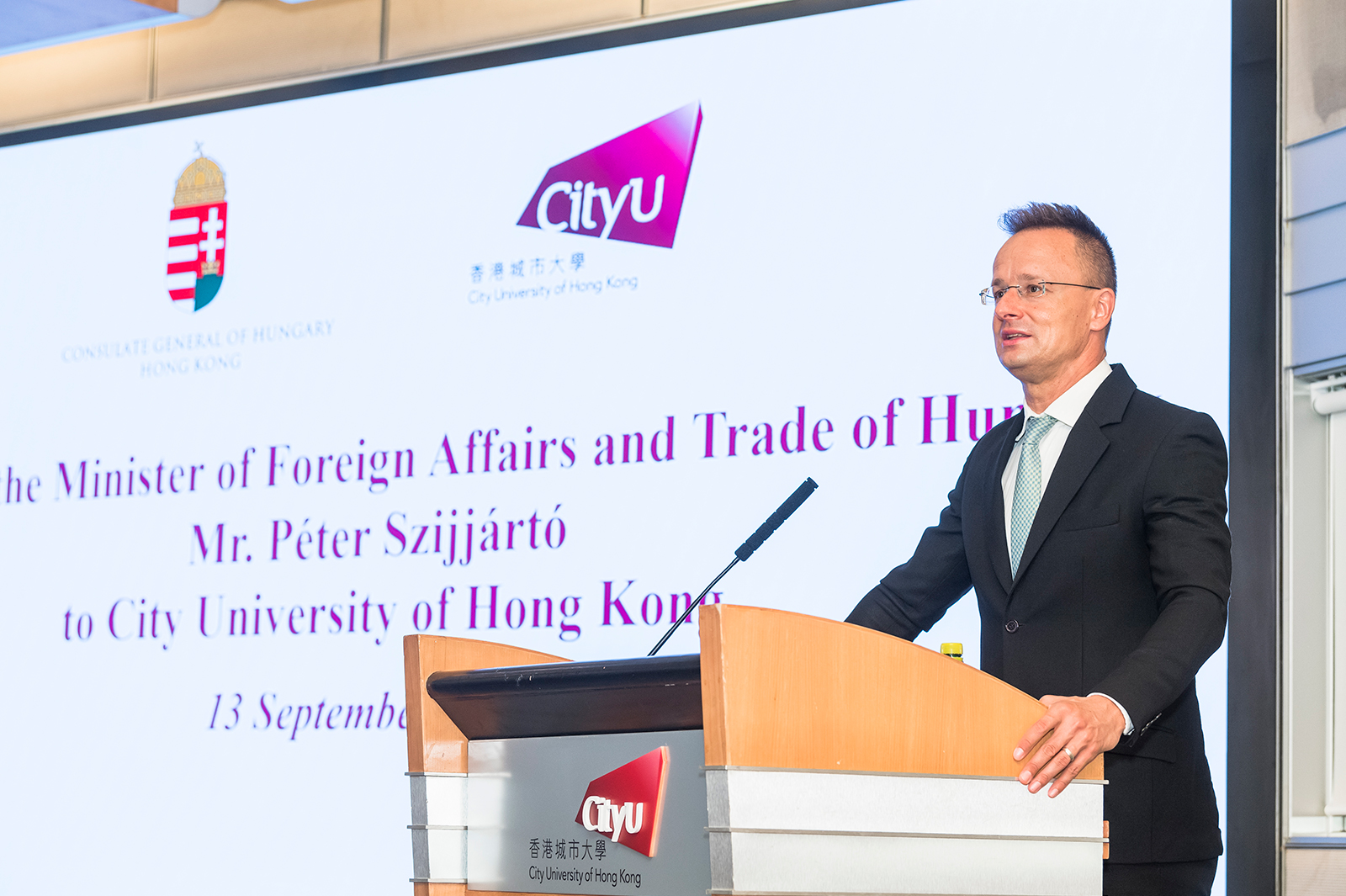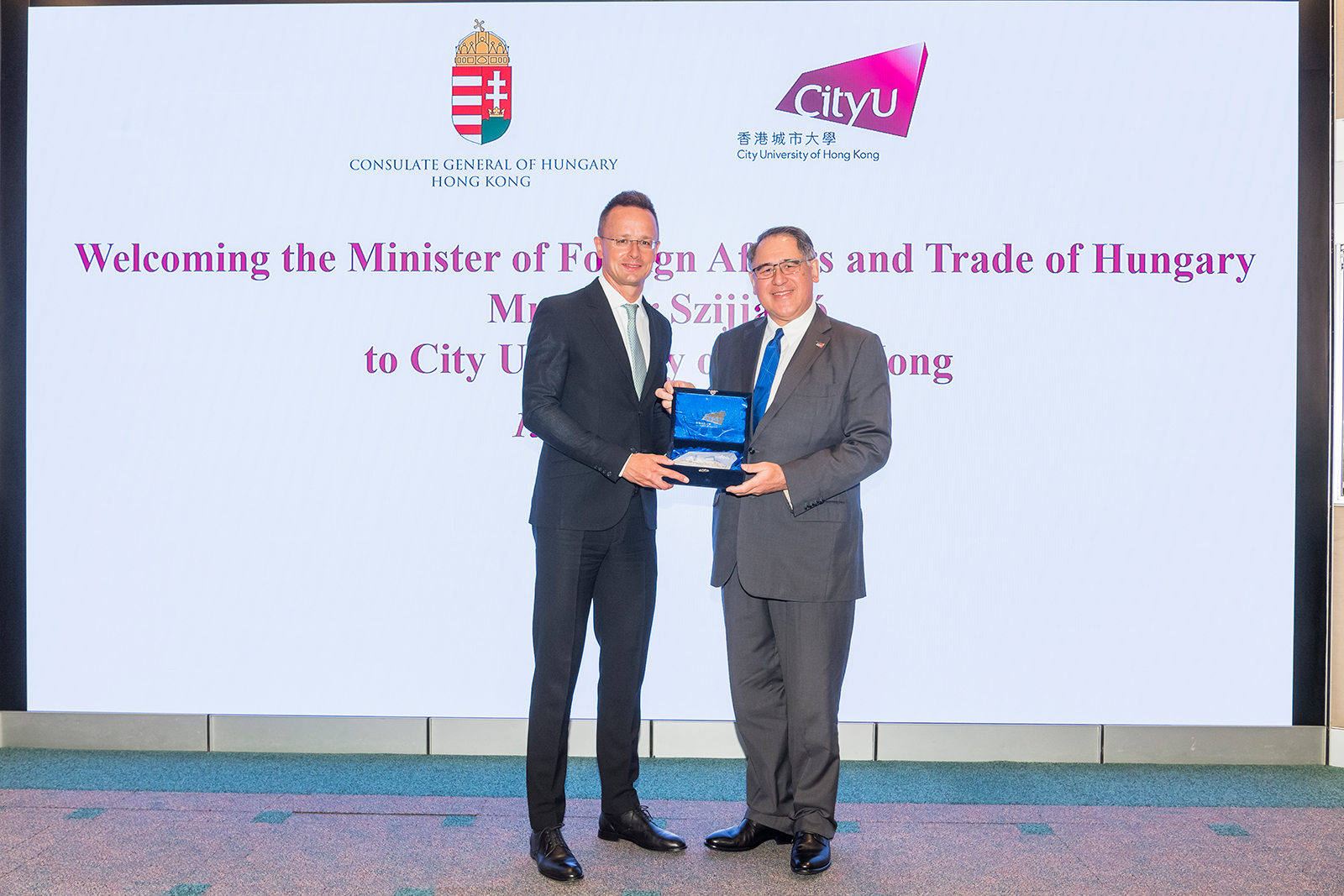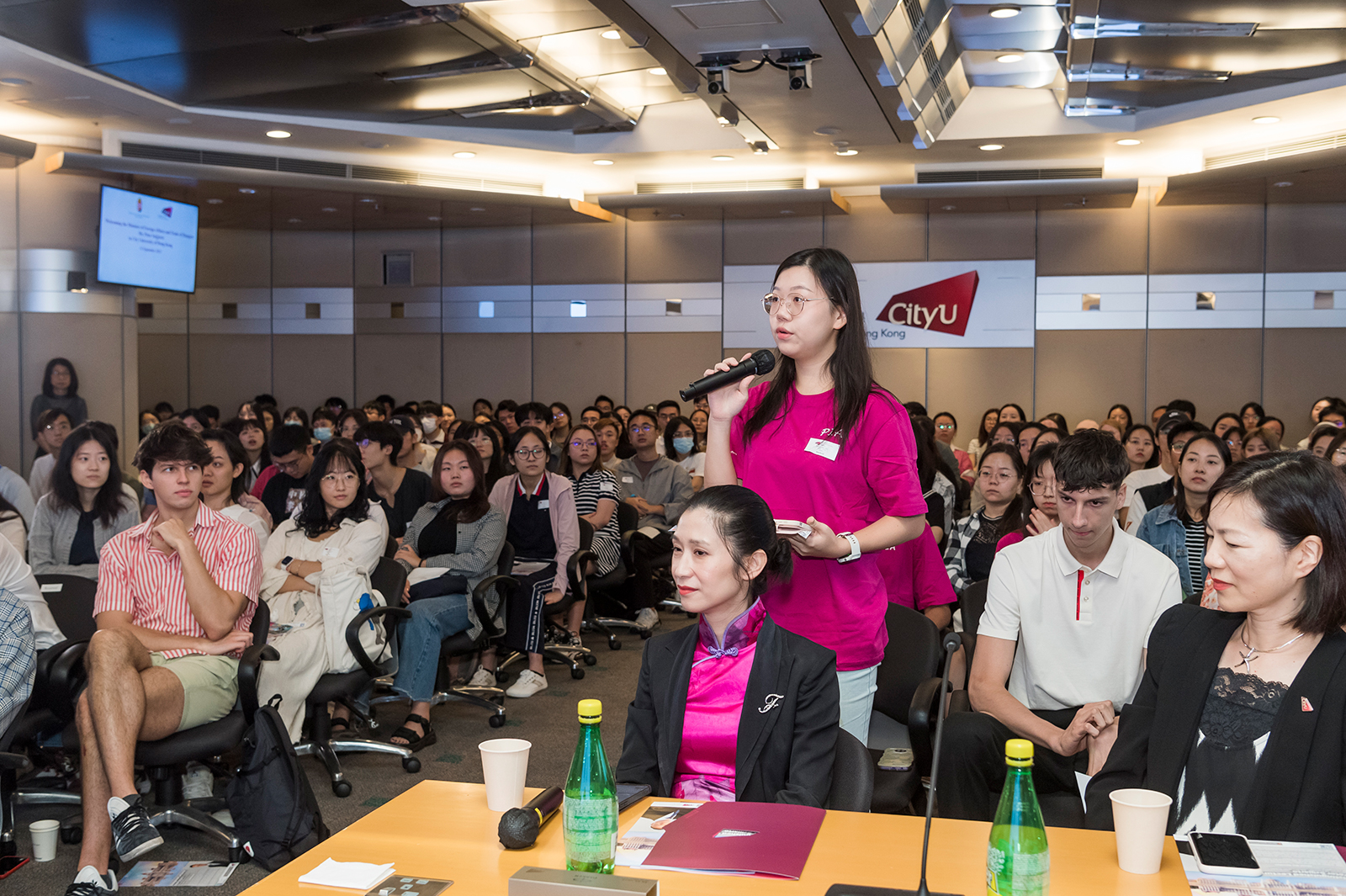Hungary’s Foreign Minister analyses geopolitical concerns for Europe and China ahead of Belt and Road Summit at Distinguished Lecture at CityU

Hungary’s physical and economic security concerns amid highly complex geopolitical pressures were the central elements in a Distinguished Lecture delivered by Mr Péter Szijjártó, Minister of Foreign Affairs and Trade of Hungary, on 13 September at City University of Hong Kong (CityU).
Mr Szijjártó was in Hong Kong to lead a delegation of senior Hungarian officials at the Belt and Road Summit held in Wanchai from 13 to 14 September.
In his specially convened talk specifically for CityU students, Mr Szijjártó outlined his country’s position on Ukraine and economic relations with China, mapping out Hungary’s historical experience located between competing nation-states in the West and the East, the dangers of escalating the conflict through the supply of weapons, Hungary’s membership of NATO and the EU, Sino-Hungarian economic ties, and the devastating effect of the war on global inflation and food and energy supplies.

“The only morally acceptable position is to end the war and seek peace,” Mr Szijjártó said, adding that the whole world was paying the price for war.
His country’s position was to work towards ensuring that communication channels remained open, warning that the creation of blocs in which narrow self-interests were privileged would have a wholly negative influence on global political and economic relations.
He used the automotive sector in Europe to stress the need for projects such as the Belt and Road initiative, noting that the industry would require batteries for electric vehicles but that those batteries were primarily built in China. Thus, decoupling and de-risking from China, he argued, would be very bad for the European economy.
This concern was driving Hungary to become a major powerhouse for car battery production with investment from China.

During the Q&A, Mr Szijjártó took questions on the future of Sino-Hungarian relations and concerns about global economic blocs from several of the more than 100 students in attendance.
Representing CityU at the talk were Mr Lester Garson Huang, Council Chairman; Ms Lilian Chiang, Deputy Chairman of the Council, who gave the welcoming remarks; Professor Lee Chun-sing, Provost and Deputy President; and Professor Li Wenjung, Vice-President (Talent and International Strategy.
Joining Mr Szijjártó were Ms Gabriella Selmeczi, a member of Hungary’s National Assembly; Ms Katalin Bihari, Deputy State Secretary for External Economic Relations; Ms Márta Tóth-Mészáros, Director General of China Department, Ministry of Foreign Affairs and Trade of Hungary; and Dr Pál Kertész, Consul General, Consulate General of Hungary, Hong Kong.
Professor Alfred Ho Tat-kei, Head of the Department of Public and International Affairs (PIA), introduced the speaker, saying the talk was an excellent opportunity for CityU students to hear from a top-level politician. Also attending the talk were Professor Richard M. Walker, Dean of the College of Liberal Arts and Social Sciences, and Professor Linda Li Che-lan, Associate Head of PIA.